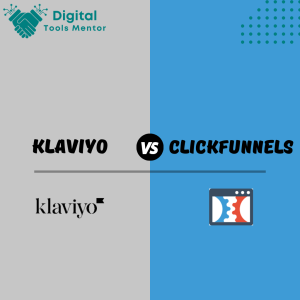AI for Crafting Compelling Marketing Copy: A Beginner’s Guide
In the fast-paced world of digital marketing, Artificial Intelligence (AI) has emerged as a game-changer, revolutionizing how businesses interact with their customers. AI’s integration into marketing strategies is not just a futuristic concept but a present-day reality, offering unprecedented advantages in crafting compelling and impactful marketing copy. The advent of AI in the marketing realm marks a significant shift from traditional methods. It’s no longer about just creating content; it’s about creating content that resonates. AI’s ability to analyze vast amounts of data, understand consumer behavior, and predict trends has made it an indispensable tool for marketers. From personalized email campaigns to AI-driven chatbots providing customer service, AI’s footprint in marketing is expanding rapidly. This technology isn’t just enhancing efficiency; it’s reshaping strategies and enabling a more targeted, personalized approach to customer engagement. This blog post aims to demystify role of AI for carfting compelling marketing copy. It’s designed to guide you through the nuts and bolts of leveraging AI for your marketing needs, irrespective of your familiarity with the technology. Whether you’re a small business owner, a digital marketing novice, or someone curious about the intersection of AI and marketing, this post will provide insights into how AI can transform your marketing content from standard to standout.
Let’s consider the story of ‘Bean There,’ a small coffee shop that struggled to attract local customers despite its superior product. By integrating AI tools into their marketing strategy, ‘Bean There’ was able to analyze customer reviews and social media trends to understand what coffee lovers sought. Leveraging these insights, they crafted personalized email campaigns and social media posts that resonated deeply with their audience. The result? A 30% increase in foot traffic and a significant uptick in online engagement. This real-life example underscores AI’s power in transforming standard marketing copy into a compelling narrative that strikes a chord with the target audience.
Role of AI in Marketing
The integration of Artificial Intelligence (AI) into marketing is not just an advancement; it’s a revolution. To fully appreciate its impact, it’s crucial to understand what AI is and how it’s transforming the marketing industry.
At its core, Artificial Intelligence (AI) is the simulation of human intelligence processes by machines, especially computer systems. These processes include learning (the acquisition of information and rules for using the information), reasoning (using rules to reach approximate or definite conclusions), and self-correction. In simpler terms, AI enables machines to think, learn, and adapt in a way that mimics human intelligence, but at a scale and speed that far surpasses our capabilities.
Types of AI Tools for Marketers
For marketers, AI offers a plethora of tools, each designed to tackle specific aspects of marketing:
- Data Analysis and Insights: Tools that analyze customer data to reveal trends and insights, helping businesses understand their audience better.
- Content Generation: AI-powered content generators that can create basic written content, aiding in the creation of blog posts, social media updates, and more.
- Personalization Engines: These tools help in creating personalized experiences for customers, from email marketing to website interactions. i.e HubSpot
- Chatbots and Virtual Assistants: AI-driven bots that interact with customers, providing instant responses and improving customer service.
- Predictive Analytics: Tools that use data, statistical algorithms, and machine learning techniques to identify the likelihood of future outcomes based on historical data.
How AI is Changing the Marketing Landscape
AI’s influence on the marketing landscape is profound and multifaceted:
- Enhanced Customer Insights: AI’s ability to process and analyze massive data sets offers deeper insights into customer behavior, preferences, and trends.
- Increased Personalization: With AI, businesses can tailor their marketing efforts to individual customers, leading to more effective and engaging campaigns.
- Efficiency and Automation: AI automates repetitive tasks, allowing marketers to focus on strategy and creative aspects.
- Improved Decision-Making: AI provides marketers with real-time data and insights, enabling more informed and strategic decision-making.
- Innovative Engagement: From chatbots to personalized recommendations, AI offers new ways to engage and delight customers.
The integration of AI in marketing not only streamlines operations but also opens up new avenues for creativity and personalization, setting a new standard in customer engagement and experience.
Advantages of Using AI for Marketing Copy
Embracing Artificial Intelligence (AI) in marketing copy creation is not just about embracing new technology; it’s about unlocking a new realm of possibilities. AI brings a host of advantages to the table, fundamentally altering how marketing content is crafted and delivered.
1. Enhanced Creativity and Diversity in Content
One might think that machines lack the creative flair of humans, but AI in marketing proves otherwise. Here’s how:
- Innovative Content Ideas: AI can generate unique content ideas by analyzing current trends, competitor strategies, and customer preferences, ensuring that the content is both relevant and original.
- Diverse Content Formats: From blog posts and social media updates to interactive content like quizzes and infographics, AI tools can help create a variety of content types, appealing to a broader audience.
- Language and Tone Adaptation: AI can adapt the language and tone of the content to suit different audiences and platforms, enhancing the relatability and effectiveness of the marketing copy.
2. Improved Efficiency and Time-Saving Aspects
The efficiency brought in by AI is a game-changer in marketing:
- Automated Content Creation: AI can quickly generate drafts for articles, emails, and social media posts, significantly reducing the time spent on content creation.
- Content Optimization: AI tools can optimize content for search engines (SEO), increasing online visibility and reach.
- Real-time Content Updates: AI can update content in real-time based on new data or trends, keeping the marketing copy fresh and relevant.
3. Ability to Analyze and Understand Customer Preferences
Understanding the audience is key in marketing, and AI excels in this aspect:
- Behavioral Analysis: AI can analyze customer behavior patterns to understand preferences and interests, tailoring the content to resonate with the target audience.
- Personalization at Scale: AI enables personalized content creation at a scale impossible for humans, ensuring that each customer feels uniquely addressed.
- Predictive Analysis: By predicting future trends and customer responses, AI can help craft marketing copy that stays ahead of the curve, appealing to customers even before they realize their own needs.
In conclusion, AI in marketing copy doesn’t just streamline the process; it revolutionizes it, offering enhanced creativity, efficiency, and a deep understanding of customer preferences. It’s a tool that transforms marketing from a scatter-gun approach to a targeted, effective strategy.
Steps to Implement AI in Your Marketing Strategy
Integrating Artificial Intelligence (AI) into your marketing strategy might seem daunting, but with the right approach, it can be a smooth and transformative process. Here are practical steps to help you harness the power of AI effectively:
1. Identifying the Right AI Tools for Your Specific Needs
- Assess Your Needs: Begin by analyzing your marketing objectives and challenges. Are you looking to enhance content personalization, improve customer engagement, or optimize for SEO?
- Research AI Tools: Explore various AI tools that align with your specific needs. Look for tools specialized in content creation, customer data analysis, personalization, or whatever your primary focus is.
- Consider Compatibility: Ensure that the AI tool you choose can integrate seamlessly with your existing marketing software and platforms.
- Trial and Evaluation: Before fully committing, use trial versions to test the effectiveness of the AI tools. Monitor their impact on your marketing efforts and determine if they meet your expectations.
2. Integrating AI Tools with Existing Marketing Processes
- Develop a Strategy: Define how the AI tool will fit into your current marketing strategy. Will it assist in content creation, customer segmentation, or campaign analysis?
- Training and Onboarding: Educate your team on how to use the AI tool. Understanding its functionalities and capabilities is crucial for effective integration.
- Data Integration: Ensure that the AI tool has access to relevant data sources. The more data it can analyze, the more effective it will be.
- Monitor and Adjust: Continuously monitor the performance of the AI tool within your marketing processes. Be prepared to make adjustments to ensure optimal integration and performance.
3. Tips for Effectively Using AI to Generate Compelling Content
- Start with Clear Objectives: Define what you want to achieve with AI-generated content – whether it’s increasing engagement, driving traffic, or boosting conversions.
- Leverage AI for Ideas and Drafts: Use AI to generate content ideas and rough drafts, but don’t rely on it entirely. The human touch is essential for fine-tuning and ensuring the content aligns with your brand voice.
- Personalize Your Content: Utilize AI’s capability to personalize content based on customer data. Tailored content resonates better with the audience.
- Continuously Optimize Content: Use AI tools to regularly analyze and optimize your content based on performance metrics. AI can provide insights into what works and what needs improvement.
- Stay Ethical and Transparent: Always use AI ethically. Be transparent about using AI-generated content where necessary, and ensure that it aligns with your brand values and complies with regulations.
By following these steps, businesses can effectively integrate AI into their marketing strategy, enhancing their ability to create compelling, personalized, and effective marketing content.
AI for Crafting Compelling Marketing Copy: Challenges and Limitations
While the benefits of AI in marketing are substantial, it’s important to acknowledge and address the challenges and limitations that come with its implementation. Here’s how to navigate these complexities:
Common Concerns and Misconceptions about AI in Marketing
- Concern about AI Replacing Human Jobs: Emphasize that AI is a tool to augment human efforts, not replace them. It enhances creativity and efficiency, allowing marketing professionals to focus on more strategic and creative tasks.
- Misconception of AI Being Infallible: Clarify that AI is a tool that operates based on the data fed into it. It’s not perfect and requires human oversight to ensure accuracy and relevance.
- Fear of Complex Implementation: Demystify AI by presenting it as a series of manageable steps. Highlight the importance of starting small, learning, and gradually integrating more complex AI functionalities.
Strategies for Overcoming Potential Challenges
- Data Quality and Privacy Concerns: Ensure that the data used by AI tools is of high quality, relevant, and collected ethically. Adhere strictly to data privacy laws and best practices to maintain consumer trust.
- Integrating AI with Existing Systems: Plan a gradual integration process. Start with standalone AI tools that require minimal system changes and then move to more integrated solutions as comfort with AI grows.
- Skill Gaps and Training Needs: Invest in training and development for your team. Understanding how to work with AI tools is crucial for maximizing their potential.
Ensuring Ethical and Responsible Use of AI in Marketing
- Transparency with Customers: Be transparent about the use of AI, especially in customer interactions. Customers should know when they are interacting with AI, such as chatbots.
- Avoiding Bias in AI Algorithms: Regularly audit AI tools for biases. AI should be used to enhance inclusivity in marketing, not reinforce stereotypes or biases.
- Compliance with Regulations: Stay updated on laws and regulations governing AI and data use in marketing. Compliance is not just legal; it’s a matter of brand trust and ethical responsibility.
By addressing these challenges and ensuring an ethical, responsible approach to AI in marketing, businesses can fully leverage AI’s potential while maintaining trust and credibility with their audience.
Future of AI for Crafting Compelling Marketing Copy
As we look towards the horizon, the role of Artificial Intelligence (AI) in marketing continues to evolve, promising exciting developments and challenges. Understanding these future trends and preparing for them is crucial for businesses aiming to stay competitive and innovative.
Emerging Trends and Future Possibilities
- Advanced Personalization: AI is expected to offer even more sophisticated personalization techniques, allowing for hyper-personalized marketing content tailored to individual preferences and behaviors at an unprecedented level.
- Voice and Visual Search Optimization: With the rising use of voice assistants and visual search, AI will play a critical role in optimizing content for these new search formats.
- AI-Driven Content Strategy: AI will not only assist in creating content but also in strategizing, predicting the most effective types of content, and the optimal times and platforms for publishing.
- Emotion AI: Emerging technologies in emotion AI (affective computing) will enable more emotionally intelligent content, capable of gauging and responding to the emotional state of the audience.
How Businesses Can Stay Ahead of the Curve
- Continuous Learning and Adaptation: Stay informed about AI advancements and continually adapt your marketing strategies to leverage new tools and capabilities.
- Invest in Talent and Training: Invest in skilled professionals who understand AI and can bridge the gap between technology and marketing.
- Experiment and Innovate: Encourage a culture of innovation where experimenting with new AI tools and techniques is supported and valued.
- Data-Driven Decision Making: Emphasize a data-driven approach in your marketing strategies, leveraging AI to gain insights and make informed decisions.
Evolving Role of AI in Marketing
The role of AI in marketing is not static; it’s a dynamic force that’s reshaping the landscape. As AI technology continues to advance, its integration into marketing strategies becomes more crucial. The future of marketing with AI is not just about automating tasks; it’s about creating more meaningful, personalized, and engaging experiences for consumers. Businesses that embrace this evolution will find themselves not just keeping up but leading in the new era of digital marketing.
By staying informed, adaptable, and innovative, businesses can harness the full potential of AI to create marketing strategies that are not only efficient but also deeply resonant with their target audience.
AI for Crafting Compelling Marketing Copy: Conclusion
As we draw this exploration to a close, let’s reflect on the key insights we’ve uncovered about the transformative role of AI in crafting compelling marketing copy.
- Understanding AI: We began by demystifying AI, highlighting its basic principles and the types of AI tools available for marketers.
- Advantages of AI in Marketing: We delved into the significant benefits AI offers, such as enhanced creativity, improved efficiency, and the ability to deeply understand customer preferences.
- Practical Implementation Steps: We outlined practical steps for integrating AI into marketing strategies, including choosing the right tools and effectively using AI to create compelling content.
- Overcoming Challenges: We addressed the challenges and misconceptions surrounding AI in marketing and discussed strategies to overcome them while maintaining ethical practices.
- The Future of AI in Marketing: Finally, we looked ahead to the emerging trends and future possibilities of AI in marketing, underscoring the importance of staying informed and adaptable.
To all marketers out there, from the seasoned experts to the budding enthusiasts: the AI revolution in marketing is not just an opportunity; it’s a paradigm shift. Embracing AI is no longer an option but a necessity to stay relevant and competitive. AI offers a chance to push the boundaries of creativity, efficiency, and personalization in ways we’ve only begun to explore.
Embark on the AI Journey in Your Marketing Strategies
Now is the time to act. Start small if you must, but start. Experiment with AI tools that fit your specific needs, learn from the insights they provide, and gradually expand your AI capabilities. Remember, the journey into AI in marketing is not a sprint; it’s a marathon. With each step, you’ll not only enhance your marketing efforts but also pave the way for future innovations.
So, embark on this exciting journey. Experiment with AI in your marketing strategies. Embrace the change, and watch as your marketing copy transforms from good to extraordinary.




